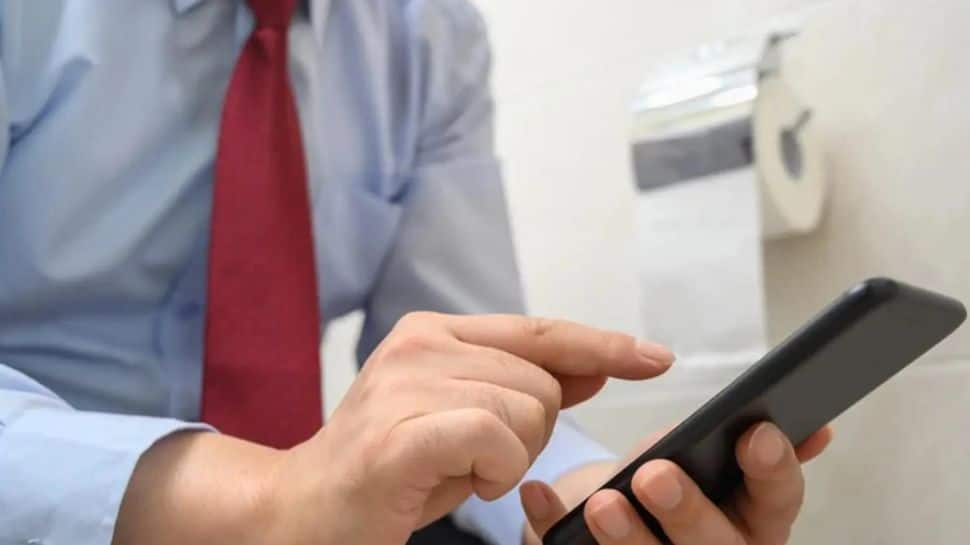New Delhi: It starts as a small routine. The bathroom becomes the place to check messages, scroll social media or read the news. Few stop to think of the health cost of this habit. A new warning from doctors says the cost may be steep.
Hyderabad-based neurologist Dr Sudhir Kumar, trained at Christian Medical College Vellore, has flagged the risk. He pointed to a fresh study that examined the effects of smartphones in bathrooms. Titled “Smartphones in the Toilet: A Hidden Health Risk You Should Not Ignored”, his post on X (formerly Twitter), says prolonged sitting inside toilets is the main danger. The posture increases pressure inside rectal veins that raises the chances of haemorrhoids.
Often called piles, haemorrhoids are swollen and inflamed veins in the rectum or anus. They can develop inside the rectum (internal haemorrhoids) or under the skin around the anus (external haemorrhoids).
Dr Sudhir explained that the smartphone acts as the distraction. What should be a quick visit turns into a long stretch without awareness.
Smartphones in the Toilet: A Hidden Health Risk You Should not Ignore
In today’s fast-paced world, many of us carry our smartphones everywhere, even into the toilet. For some, the bathroom has become a mini reading lounge, a place to catch up on news, emails, or social media… pic.twitter.com/VvfdU0w3Gi
— Dr Sudhir Kumar MD DM (@hyderabaddoctor) September 5, 2025
The research appeared in the journal ‘Public Library of Science’ (PLOS) under the title “Smartphone use on the toilet and the risk of haemorrhoids”. The results shocked even doctors. Two out of three adults confessed to carrying a smartphone into the bathroom. The study found that phone users stayed seated more than five minutes at a time, five times more often than non-users. After adjusting for food habits, physical activity and lifestyle patterns, the risk still stood high. Smartphone users faced a 46% greater chance of haemorrhoids.
Dr. Trisha Pasricha, author of the study who is a senior researcher and director of the Gut-Brain Research Institute at Beth Israel Deaconess Medical Centre in Boston, explained the concern on Instagram. She said her lab’s research highlighted a serious but overlooked link. She highlighted that half of phone users stayed on the toilet longer than they intended. She urged people to leave the phone outside. For those unable to resist, she advised strict time limits. She even suggested carrying a magazine instead.
Dr. Kumar also listed basic steps that help. Toilet time should not stretch beyond five minutes. He pointed to a high-fibre diet, good hydration and regular exercise as added shields against haemorrhoids.

